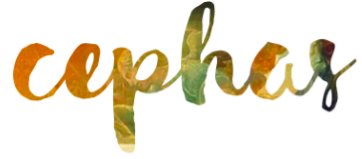Short summer courses
'What is Knowing?'
Divine, Human and
Artificial Intelligence
23rd - 26th August 2024
“Until maybe a couple of years ago had I been asked what is the most pressing and important conversation we should be having about our future, I might have said climate change or one of the other big challenges facing humanity, such as terrorism, antimicrobial resistance, the threat of pandemics or world poverty. But today I am convinced the most important conversation we should be having is about the future of AI. It will dominate what happens with all of these other issues for better or for worse.”
Prof. Jim Al-Khalili, Head of the British Science Association, 2018
'What is Knowing?' Divine, Human and Aritificial Intelligence
CEPHAS 2024 will be an opportunity to engage in ‘the most important conversation we should be having’ about ‘the future of AI’.
The course will reflect in a profound way on the nature of knowing, and the implications of Artificial Intelligence for the present and the future.
To provide context to the particularity of artificial intelligence, the course will first explore Aquinas’s account of divine, angelic, and human knowing, as well as the nature and uses (both actual and potential) of different forms of artificial knowing and intelligence.
The course requires no prior qualification or knowledge, but is intended to serve as an introduction or primer to Catholic, Thomistic philosophy and theology.
The course is offered to anyone wishing to engage in this area. It may be of special interest to future, current or former students of philosophy and theology, and secondary-level teachers of the same.
For queries about the course content or requirements, please contact Dr George Corbett at gc63@st-andrews.ac.uk
CEPHAS courses are built around a combination of philosophical and theological lectures and workshops, with plenty of discussion.
A guest talk, accompanied by good wine, is offered on one of the evenings.
The course is framed by opportunities for Mass during the day and communal prayer in the morning and evening.
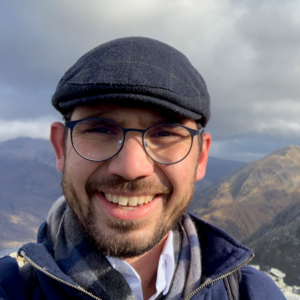 Fr Jean Gové’s research—in philosophy of mind and language—focuses on the relationship between thought, reference, virtual reality, and artificial intelligence.
Fr Jean Gové’s research—in philosophy of mind and language—focuses on the relationship between thought, reference, virtual reality, and artificial intelligence.
A diocesan priest from the Archdiocese of Malta, he is currently completing his PhD in philosophy at the University of St Andrews, where he also studied for his masters (MLitt in Philosophy). He received his Bachelor of Sacred Theology from the University of Malta, and he has also studied, as a visiting researcher, at the Pontifical Gregorian University (Rome) and at the Institut Jean Nicod (ENS, Paris).
He lectures at St Mary’s University, Twickenham, and he has also regularly guest-lectured at the Department of AI, University of Malta.
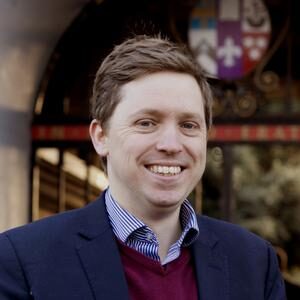
Prof. George Corbett (Director of CEPHAS) is Professor of Theology at the School of Divinity, University of St Andrews. Previously, he held positions as Junior Research Fellow in Philosophy, Trinity College, and affiliated lecturer, University of Cambridge. He received his BA (double first), MPhil (distinction), and PhD (AHRC-funded) from the University of Cambridge. He has also studied in Pisa (as an Erasmus-Socrates exchange scholar at La Scuola Normale Superiore), Rome (Institutum Pontificium Alterioris Latinitatis), and Montella (Vivarium Novum).
He teaches and researches in historical and systematic theology (with specialisms in medieval theology, Aquinas’s theology and its influence, and Catholic theology) and theology and the arts (with specialisms in Dante studies, sacred music, and theological aesthetics).
Prof. Corbett is the author of Dante’s Christian Ethics: Purgatory and Its Moral Contexts (Cambridge: Cambridge University Press, 2020) and Dante and Epicurus: A Dualistic Vision of Secular and Spiritual Fulfilment (Oxford: Legenda, 2013), and is co-editor of Vertical Readings in Dante’s Comedy, 3 vols (Cambridge: Open Book Publishers, 2015-17), an international collaboration by thirty-four scholars on a reappraisal of the whole poem. He has also published on Aquinas, sacred music, medieval theology, and the arts.
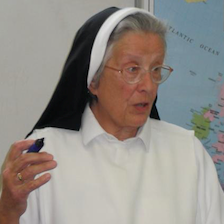
Sr Valery Walker, O.P. is a Dominican Sister of the Stone Congregation. In the early 1970s, she was introduced by Fr Romuald Horn O.P. to a particular method of studying the Summa Theologica of St Thomas Aquinas. Since then, she has run numerous study days on Saint Thomas study days and weekends.
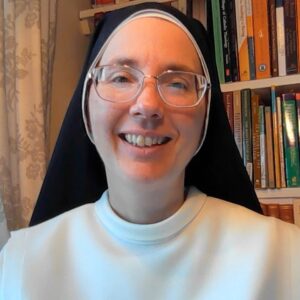
Sr. Magdalene Eitenmiller, O.P. is a Dominican sister of the Stone Congregation.
She received a Master’s degree in Theology (Ave Maria University, Florida), and the Licentiate in Sacred Theology in Thomistic Studies (Dominican House of Studies, Washington, D.C.), and she is currently pursuing doctoral studies with the Pontifical University of St. Thomas Aquinas (the Angelicum) in Rome. She is the author of “On the Separated Soul according to St. Thomas Aquinas,” Nova et Vetera 17.1 (2019):57-91 and “Grace as Participation according to St. Thomas Aquinas” New Blackfriars (2017): 689-708, among other publications.
Sr. Magdalene teaches courses on the thought of St. Thomas Aquinas online, and has developed a website called Thomisticstudies.org, as well as a Youtube channel, Facebook, and Instagram pages.
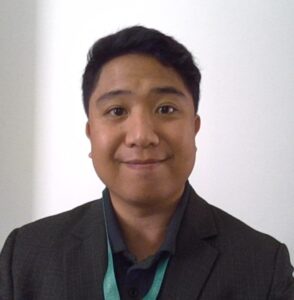 Dr Joey Belleza is a recent doctoral graduate of the University of Cambridge, where he wrote a dissertation entitled “In Principio Erat Signum: Dueling Dionysianisms & Sacramental Semiotics in Thomistic and Mystical Franciscan Poetry”. His research interests span the fields of historical and systematic theology, Thomistic and Franciscan studies, liturgical studies, and contemporary philosophy. He is currently Assistant for Marketing & Communications for the CHC.
Dr Joey Belleza is a recent doctoral graduate of the University of Cambridge, where he wrote a dissertation entitled “In Principio Erat Signum: Dueling Dionysianisms & Sacramental Semiotics in Thomistic and Mystical Franciscan Poetry”. His research interests span the fields of historical and systematic theology, Thomistic and Franciscan studies, liturgical studies, and contemporary philosophy. He is currently Assistant for Marketing & Communications for the CHC.
Theodore House offers a wonderful venue for any residential course. The tranquil and beautiful surroundings of the Stonyhurst estate offer a peaceful setting with endless opportunities for walks. Guests will enjoy the comfortable recreational spaces and a beautifully lanscaped garden.
For more information about Theodore House, please click here.
- Arrivals from 3pm (Friday)
- Course commences with dinner at 7pm (Friday) and introductions; lectures commence Saturday at 9:15am.
- Departures after lunch (Monday)
Cost
Single room: £320 p.p.*
Twin room (sharing): £270 p.p.*
Non-residential, (includes lunch and dinner): £180 p.p.
*Costs include full board from Friday dinner to Monday lunch inclusive.
Bursaries are available for anyone (whether employed or not) who would like to come but would benefit from financial assistance. Please contact us at events@christianheritagecentre.com for further information.
“My first Cephas event has been excellent and I would recommend to everyone to attend. Hope to book for next year’s. Great learning environment, relaxed and no pressure, which I really appreciated.“
“It’s a real tribute to everyone who has been involved in pulling off such a huge topic brilliantly. Well done!“
Please register below (includes £50 p.p. deposit payment):
![]()
Venue & Getting to us:
![]()
If you are reliant on public transport, please consider traveling by train to Preston train station. From there, we aim to co-ordinate minicab shares or lifts amongst participants of any given event. If you require further advice or assistance, email us: events@christianheritagecentre.com

